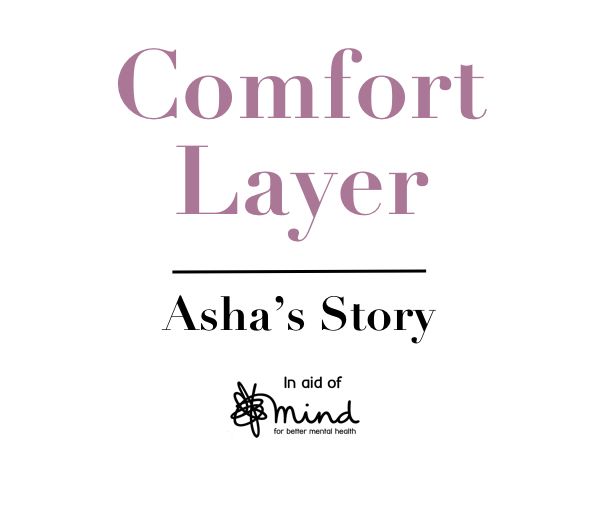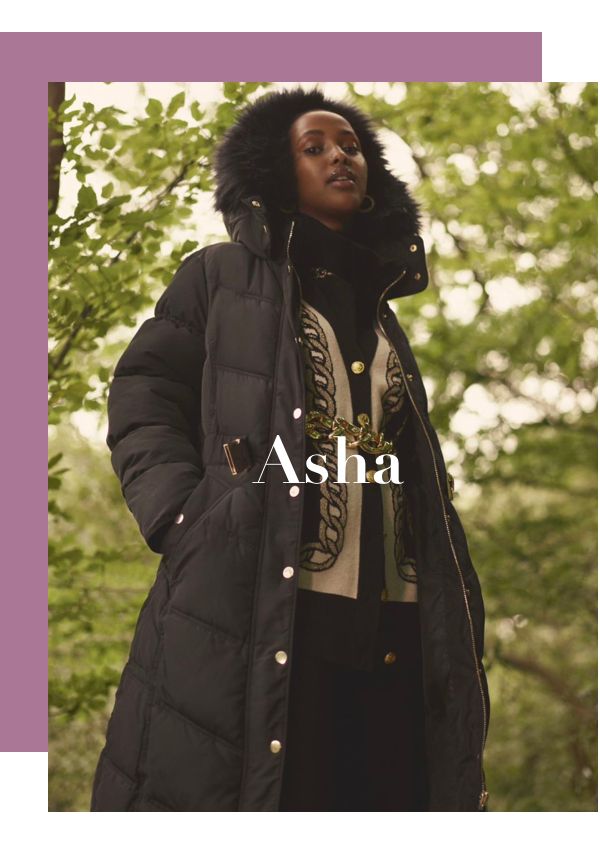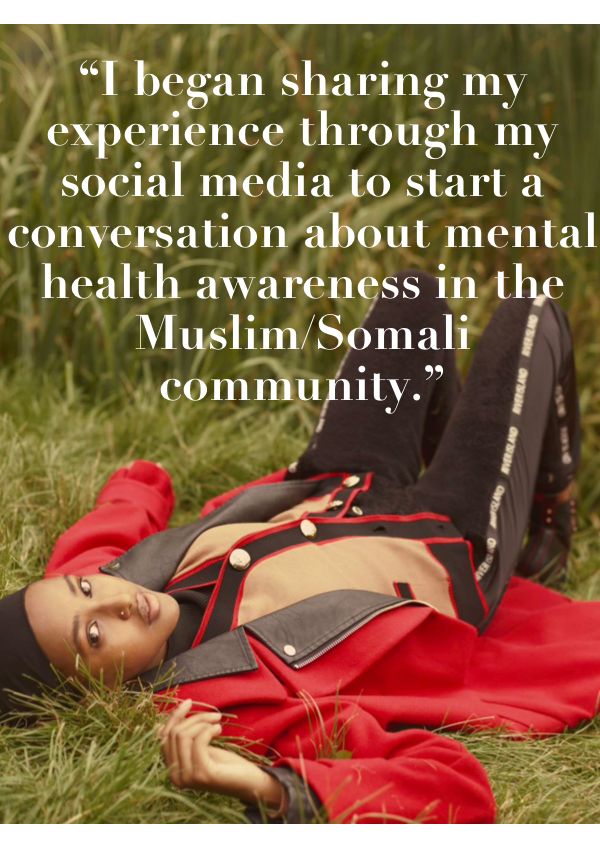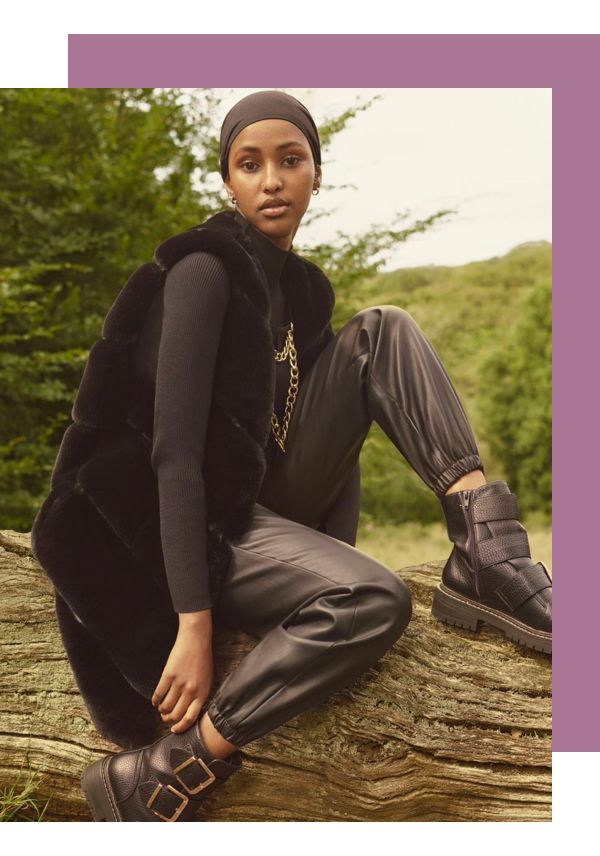
This autumn we’re wrapping ourselves up in good style and good feelings with Comfort Layers that count. We know that good feelings aren’t always easy to find, especially right now and we need to talk about it. One in four of us will experience a mental health problem each year and a recent Mind survey revealed the overwhelming effect of coronavirus on our mental health. October shines a light on wellbeing as World Mental Health Day comes to the forefront. We’re working with Mind to reveal the person beneath the comfort layers and break down the stigmas of mental health.
To help us do that, we spoke to Asha Mohamud, a Property Management student and mental health first aider, about breaking down the stigmas and stereotypes around mental health and how anxiety and depression are not dirty words…

Tell us a little about yourself
I’m Asha Mohamud, a 22-year-old black Muslim woman born in Kenya and raised in London. I am currently studying Property Management, going into my final year of my undergrad degree. I’m an active member in my community, running many projects to engage and provide opportunities for the kids in my area, as well as the co-founder of a national award-winning project, as part of the MFA Grassroots Rising Stars of the Year initiative. I am also a mental health first aider and have worked alongside the BBC to provide workshops to raise mental health awareness.
What three words best describe you?
Caring, spontaneous and honest.
Can you tell us about your own mental wellness and the conditions you have?
For much of my teenage life I had ongoing issues relating to my self-esteem and I became extremely obsessed with the idea of being skinny. This led to me controlling my eating habits and becoming really withdrawn and depressed as a result. The concept of mental illness in my culture is looked down upon so I never got any medical help because it was taboo. This meant that when my parents found out I was self-harming, as it was my only coping mechanism at the time, they were shocked and couldn’t really understand. Seeing my parents hurt and confused by my actions inspired me to explore mental wellness and find healthy coping mechanisms.

How does it affect your day-to-day?
Having anxiety affects me on a daily basis as I doubt myself very often, I become really withdrawn and socially awkward. I still, very often, get urges to self harm on my bad days. I have managed to find coping mechanisms such as football, home workouts, running, painting etc.
You’ve said that within your culture, there are no words to describe your mental health that aren’t derogatory - can you tell us a little more about that?
In the Somali vocabulary there are no words to actually describe mental health without it being degrading and it is looked down upon. There is no education about mental health awareness, which makes issues much harder to identify and resolve.
What are your comfort layers?
Working out, playing football, running, being with my family, painting, drawing and writing notes about my feelings, then reviewing it after a few days.

How does it affect your day-to-day?
Having anxiety affects me on a daily basis as I doubt myself very often, I become really withdrawn and socially awkward. I still, very often, get urges to self harm on my bad days. I have managed to find coping mechanisms such as football, home workouts, running, painting etc.
You’ve said that within your culture, there are no words to describe your mental health that aren’t derogatory - can you tell us a little more about that?
In the Somali vocabulary there are no words to actually describe mental health without it being degrading and it is looked down upon. There is no education about mental health awareness, which makes issues much harder to identify and resolve.
What are your comfort layers?
Working out, playing football, running, being with my family, painting, drawing and writing notes about my feelings, then reviewing it after a few days.
This season, when you invest in River Island outerwear, you’ll be investing in mental health too with £2 from the sales of adults winter coats*
going directly to mental health charity Mind.
